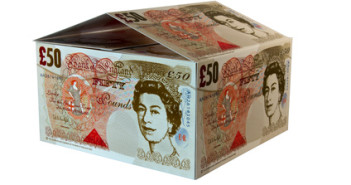The week started with gusto, with the collapse of the pound following a YouGov poll in the Sunday Times, which showed the ‘Yes’ vote for Scottish Independence had taken the lead in the opinion polls for the first time. The poll, which excluded undecided voters, put the ‘Yes’ vote on 51% with the ‘No’ vote on 49%.
Only last month some polls had given the No vote a 22 point lead so the reversal has hit the pound hard given the uncertainty over what currency an independent Scotland will use. Cable dropped from 1.6318 to 1.6168 immediately, its lowest level since December 2013. The pound’s drop was mirrored against most of its trading peers, including the euro with GBP/EUR dropping from 1.26 to 1.2470.
Tuesday saw UK Manufacturing Production print in line with forecast showing 0.3% monthly growth. The accompanying Industrial Production release beat expectations, but the good news did little to lift the pound as the Scottish referendum continued to dominate the news. GBP/USD continued downwards, dropping to 1.6067, its lowest level since Nov 2013. Even hawkish comments by Mark Carney, speaking at the Trade Union Congress in Liverpool, did little to lift the pound.
He stated that many of the conditions for the economy to normalise had “now been metâ€, and that the point where rates would rise was “getting closerâ€. Solid Jobs data continued from the States with the monthly JOLTS Job Openings release coming in at 4.67M. EUR/USD continued to fall and dropped below 1.29 for the first time since July 2013, as the shared currency continued to be sold off following the ECBs surprise rate cut. Earlier in the day the Aussie had fallen dramatically, on the back of a much worse than expected monthly Westpac Consumer Sentiment reading. It fell -4.6% from last month’s reading, which led to AUD/USD dropping to .9118 it lowest level since March.
By Jake Trask at UKForex, an international money transfer service
Wednesday saw sterling start to recover, as an opinion poll conducted for the Daily Record put the ‘No’ vote back in the lead. The poll conducted by Survation put the No vote on 46%, the Yes vote on 40% and 14% undecided. GBP/USD moved above 1.62 for the first time this week on the back of the news. In the afternoon, we had the Inflation Report hearings at parliament with BoE Governor and other MPC members appearing. The hearing did little to move the markets, as Carney and co kept their cards close to the their chests with little being given away, including the timing of the next rate rise.
Thursday started with New Zealand keeping interest rates on hold at 3.5% as had been widely expected. The wording of the accompanying statement from Governor Wheeler saw NZD/USD drop below .82 as he described the exchange rate as being “unjustified and unsustainableâ€. Shortly afterwards we had Australian unemployment drop further than expected, from 6.4% down to 6.1%, after the economy added 121k employees to the workforce in August, its largest ever increase. Much of the new employment was made up from part-time workers so this, along with the poor Westpac Consumer Sentiment reading, meant AUD/USD gains were quickly reversed.
Friday has seen the pound’s recovery continue, with as the latest YouGov poll puts the ‘No’ vote back in the lead in the Scottish referendum. The poll by The Sun puts the vote at 52% for the ‘No’ camp, with 48% for ‘Yes’. GBP/USD has recovered and is back above 1.6250 on the news, with GBP/EUR having clawed back most of its losses as it heads towards 1.26 again. The week’s big loser was the Aussie as investors continue to pull money out of the Asian/commodity currencies and buy the dollar. AUD/USD has dropped below .9050, its lowest level since March, on the back of continued improvement in the US economy. Friday afternoon sees US Retail Sales data being released, with a small uptick from last month expected for both the core and overall reading.
Next week’s big data releases include Australia’s Monetary Policy Meeting Minutes, UK CPI and German ZEW Economic Sentiment on Tuesday. Wednesday sees Employment data and the MPC minutes from the UK. We also have US CPI, the Federal rate statement, economic projections as well as Fed chair Janet Yellen appearing at her quarterly press conference. The big event however will be Thursdays Scottish Independence vote. It looks like the Better Together campaign will come through, though expect large falls in the pound should the Scots decide to go it alone.
Listen to our latest podcast about: gold and inflation, the Scottish referendum and the pound, and the FOMC meeting:
Download it directly here.



